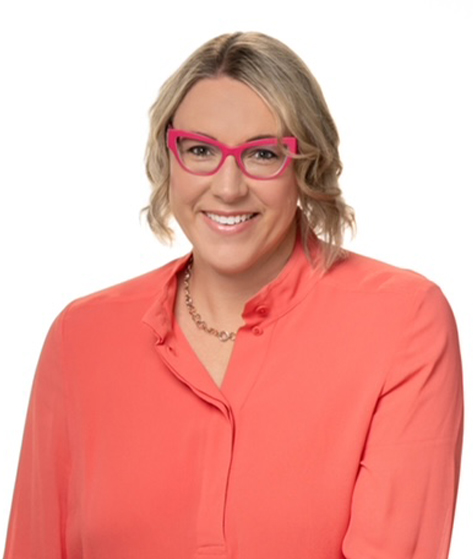At Tucson Breast Health Specialists, we provide expert care for patients with known genetic mutations, including the BRCA gene mutations. Led by Dr. Ley, our practice is dedicated to supporting individuals who have a suspected or confirmed genetic predisposition to breast cancer. If you are seeking treatment for a genetic mutation in Tucson, AZ, we offer personalized, state-of-the-art care tailored to your needs.
Understanding BRCA and Genetic Mutations
BRCA 1 and BRCA 2 tumor suppressor genes, meaning that they help to prevent cancer by repairing DNA damage and regulating cell growth. When these genes mutate, they may lead to an increased risk of developing breast cancer, ovarian cancer, and pancreatic cancer, and others. There are a number of other genetic mutations which can cause breast or other cancers, such as CHEK2, PALB2, TP53, and CDH1. For more information on genetic mutations, visit the Facing Our Risk website.
How is BRCA Mutation Diagnosed?
Genetic testing is the most effective way to determine whether you carry a BRCA mutation. If you have a family history of breast or ovarian cancer or if your healthcare provider suspects a genetic predisposition, you may be recommended for a genetic counseling and testing session. These tests are performed through a simple blood or saliva sample and analyzed for specific mutations.
How We Help Patients with a Breast Cancer Risk
At Tucson Breast Health Specialists, we help patients understand their breast cancer risk and ovarian cancer risk and create personalized care plans based on factors like personal and family history and genetic findings. Mutations in the BRCA1 and BRCA2 genes, often due to an inherited mutation, can raise the risk of breast cancer, ovarian cancer, and even pancreatic cancer. These breast cancer gene mutations are linked to hereditary breast cancers and increase the chances of developing ovarian cancer or a contralateral breast cancer.
Breast Cancer Screening and Breast Cancer Treatment
Through advanced breast and ovarian cancer screening, risk-reduction strategies, and cancer management, we support patients in efforts to prevent breast cancer, reduce breast cancer risk, and address primary breast cancer with confidence. We consider all relevant risk factors, discuss each patient’s lifetime risk, and offer access to leading breast cancer research, ensuring the highest level of care for our breast cancer patients. We guide patients from diagnosis to treatment of cancer cells with expert support.
Who Should Consider Genetic Testing?
Genetic testing and counseling may be beneficial for individuals with a higher risk of inherited cancer gene mutations, particularly those with a personal cancer history or who have family members with a cancer history. Women diagnosed with breast cancer, especially at a young age, with triple-negative breast cancer, a second breast cancer diagnosis, or a family history of breast, ovarian, pancreatic, or prostate cancer, may benefit from testing. Additionally, individuals without cancer but with a family history of BRCA or other mutations, male breast cancer, or multiple relatives affected by breast or other related cancers, such as ovarian, pancreatic, prostate, melanoma, or rare cancers, should also consider genetic counseling to assess their risk. At Tucson Breast Health Specialists, we offer genetic counseling.
Treatment Options for BRCA-Positive Patients
For patients who test positive for BRCA mutations, our clinic offers comprehensive treatment and risk-reduction strategies:
- Enhanced Surveillance: Frequent breast imaging, including mammograms, MRIs, and ultrasounds, to detect cancer at its earliest stage.
- Risk-Reducing Surgery: Prophylactic mastectomy or oophorectomy may be recommended for individuals at high risk.
- Medications for Risk Reduction: Certain medications, such as Tamoxifen and Raloxifene, can help lower the risk of developing breast cancer.
- Advanced Breast Cancer Treatment: If cancer is diagnosed, we provide access to surgical, medical, and radiation therapy options tailored to BRCA-positive patients.
Why Choose Tucson Breast Health Specialists?
At Tucson Breast Health Specialists, we prioritize personalized, patient-centered care. Dr. Ley focuses on advanced diagnostic techniques and cutting-edge treatment plans designed specifically for individuals with BRCA mutations. We work closely with oncologists, genetic counselors, and surgeons to ensure a multidisciplinary approach to your breast health.
Schedule a Consultation
If you have a known BRCA mutation or another mutation and need expert guidance on your next steps, Tucson Breast Health Specialists is here to help. Contact us today to schedule an appointment with Dr. Ley and learn more about your options for BRCA treatment in Tucson, AZ.
BRCA Frequently Asked Questions
How do BRCA mutations affect breast cancer risk?
Who should get genetic testing for BRCA mutations?
How is BRCA testing performed?
At what age should BRCA testing be done?
What preventative measures should BRCA carriers take?
Is BRCA testing covered by insurance?
Can BRCA mutations be passed to children?
How common are BRCA mutations?
What is the difference between BRCA1 and BRCA2?
Should I still get BRCA testing if I am healthy?

Board-Certified Surgeon
MICHELE LEY, MD, FACS
Dr. Ley, a breast surgical oncologist in Tucson since 2006, delivers compassionate and personalized care to create tailored treatment plans based on the latest research. Specializing in surgical care for breast cancer and high-risk patients, she employs minimally invasive techniques and practices oncoplastic surgery to optimize outcomes.
More About Dr. Ley“The level of care is excellent.”

ABOUT US
More About Us
OUR BLOG
Read Our BlogCONTACT US
We are dedicated to providing the support you need. Contact us today to learn more about how we can help on your breast health journey.
We are only accepting patients with surgical breast diseases. We do not see patients for breast pain or without imaging in the last three months. If you have been diagnosed with one of the following, please submit the contact form or call our office at (520) 605-2778 to schedule your appointment.
- Breast cancer, DCIS (ductal carcinoma in situ), LCIS (lobular carcinoma in situ), invasive ductal carcinoma, invasive lobular carcinoma, and any other breast malignancies such as sarcoma, and malignant phyllodes
- Patients with known genetic mutations such as BRCA 1, 2, and others
- Fibroadenoma, phyllodes tumor, radial scar, complex sclerosing lesion, papilloma >8mm, atypical papilloma, nipple mass or ulceration,
- Granulomatous mastitis
- Atypical ductal or lobular hyperplasia ( ALH, ADH), and any benign lesion with atypia










